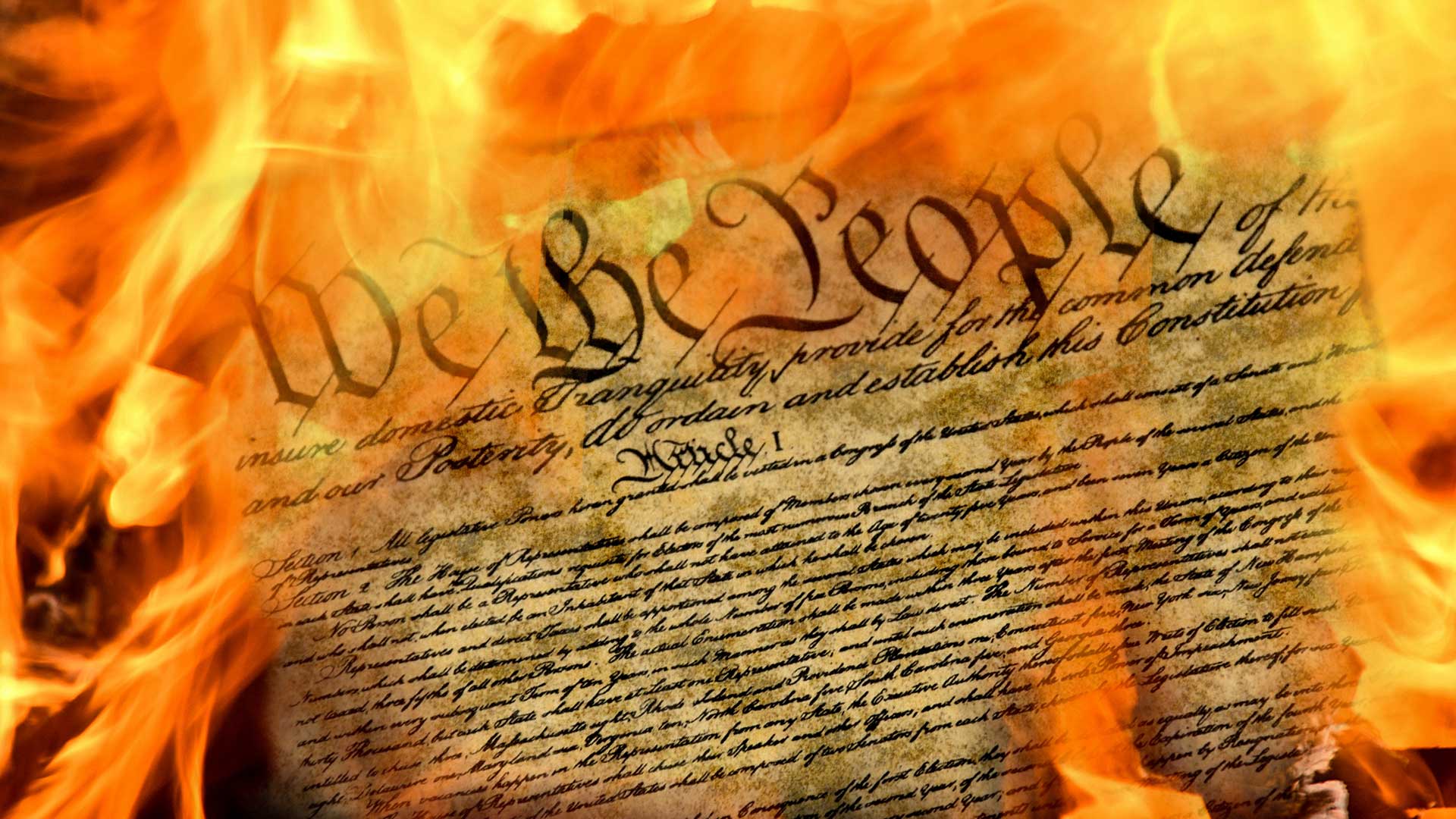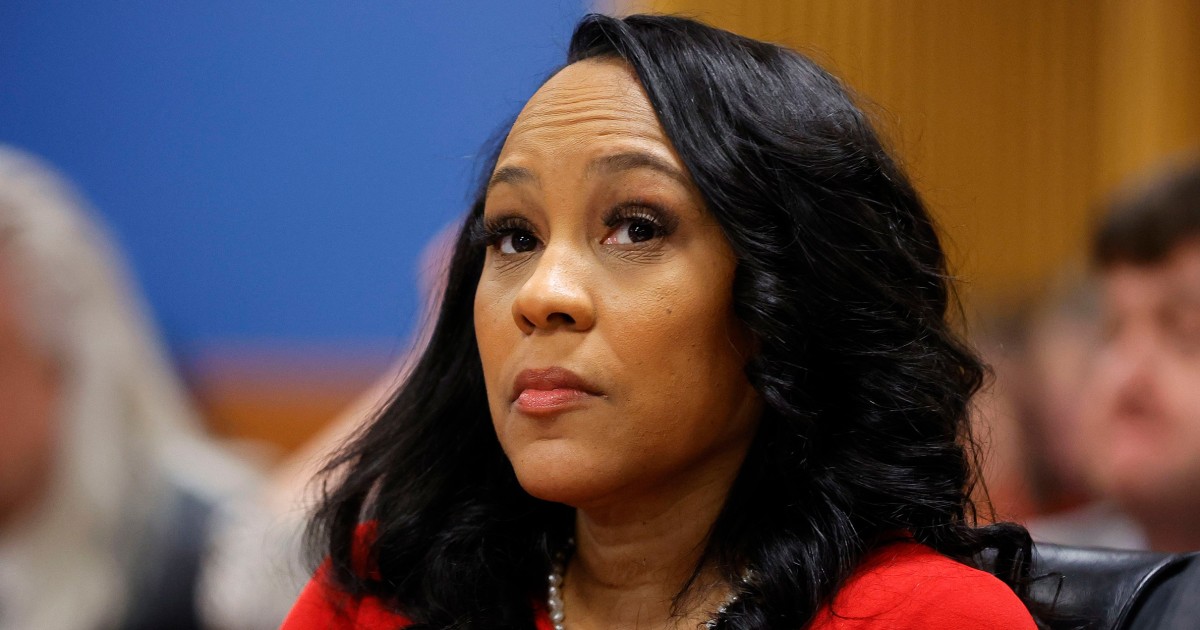A Georgia appellate court Thursday disqualified Fulton County District Attorney Fani Willis and removed her from prosecuting Donald Trump and co-defendants in a case she brought over his efforts to overturn the 2020 election.
The decision is likely to cripple the case and bring a halt to the efforts to try Trump and his allies for their efforts to overturn his loss. Federal prosecutors have already dropped Trump’s federal criminal case related to the 2020 election in the wake of his winning the presidency.
“After carefully considering the trial court’s findings in its order, we conclude that it erred by failing to disqualify DA Willis and her office,” the court said, referring to an earlier ruling that allowed Willis to remain on the case. Willis had been under scrutiny over her relationship with a special prosecutor on the case, Nathan Wade. Trump and other co-defendants had requested to have Willis removed from the case.
In a statement, Trump attorney Steve Sadow praised the Court of Appeals’ “well-reasoned and just decision” and said that it “puts an end to a politically motivated persecution of the next President of the United States.”
The court did not go so far as to completely dismiss the case, and Georgia law allows for the case to be assigned to a different county prosecutor in the state. But legal experts have said that is likely to be a difficult task given the complicated, political and novel nature of the sprawling racketeering case brought by Willis.
Trump spokesperson Steven Cheung said in a statement that “the American People have demanded an immediate end to the political weaponization of our justice system and a swift dismissal of all the Witch Hunts against him. We look forward to uniting our country as President Trump Makes America Great Again.”
The DA’s office did not immediately respond to a request for comment, but filed a notice that it plans to appeal the ruling to the Georgia Supreme Court.
Fulton County Superior Court Judge Scott McAfee had found earlier this year that an “appearance of impropriety” was created by Willis’ romantic relationship with Wade and determined one of the two needed to leave the case. Within hours of that decision, Wade resigned.
But the appellate court said McAfee’s decision did not prevent the “appearance of impropriety.”
“The remedy crafted by the trial court to prevent an ongoing appearance of impropriety did nothing to address the appearance of impropriety that existed at times when DA Willis was exercising her broad pretrial discretion about who to prosecute and what charges to bring,” the court said. “While we recognize that an appearance of impropriety generally is not enough to support disqualification, this is the rare case in which disqualification is mandated and no other remedy will suffice to restore public confidence in the integrity of these proceedings.”
One of the three judges, Benjamin Land, dissented.
“For at least the last 43 years, our appellate courts have held that an appearance of impropriety, without an actual conflict of interest or actual impropriety, provides no basis for the reversal of a trial court’s denial of a motion to disqualify,” Land wrote.
He added, “Where, as here, a prosecutor has no actual conflict of interest and the trial court, based on the evidence presented to it, rejects the allegations of actual impropriety, we have no authority to reverse the trial court’s denial of a motion to disqualify. None.”
The appeals court had been expected to hear arguments from both sides on the disqualification issue earlier this month, but abruptly canceled the hearing without explanation, meaning the ruling was based solely on legal filings.
The allegations against Willis were first brought by a lawyer for Trump’s co-defendant, former White House and campaign staffer Michael Roman.
Roman’s lawyer, Ashleigh Merchant accused Willis of skirting the rules to appoint Wade, and that she benefited financially from his appointment, including by accompanying him on trips. She also claimed they were romantically involved before Wade’s lucrative appointment.
Willis and Wade later acknowledged they’d been in a relationship, but maintained it began after he was appointed special prosecutor in November 2021.
McAfee ordered a hearing on the allegations, which included testimony from both Willis and Wade. They told the judge they had dated for a little over a year after he was appointed and that she did not profit from his work. They both said while Wade would sometimes charge plane tickets for Willis to his credit card, she’d repay him with cash or by picking up other bills.
The judge found there was no “actual conflict” brought about by the relationship, a finding that would have required Willis to be disqualified, but also blasted her “bad choices.”
“This finding is by no means an indication that the Court condones this tremendous lapse in judgment or the unprofessional manner of the District Attorney’s testimony during the evidentiary hearing,” McAfee wrote.
He said “neither side was able to conclusively establish by a preponderance of the evidence when the relationship evolved into a romantic one,” but “an odor of mendacity remains.”
Willis’s office informed the appeals court it’s appealing the decision to the Georgia Supreme Court, which will have to decide whether it will hear the case, a process that can take weeks or months.
Under Georgia law, if a DA is disqualified, their office is as well. The case is then referred to the executive director of the Prosecuting Attorneys’ Council of Georgia, who must find another prosecutor for the case.
The council’s executive director, Pete Skandalakis, told NBC News earlier this year that whoever takes over the case would be able to use the investigative work that has been completed by the DA’s office, but they’d also have the ability to do additional investigative work and to use — or discard — some or all of Willis’ indictment.
The process of finding a replacement can be lengthy. In 2022, Willis was disqualified from an investigation into the state’s lieutenant governor and it took Skandalakis almost two years to name a special counsel to take over — himself. He eventually decided not to bring charges in the case.
Trump was indicted in August 2023 along with 18 co-defendants, including his lawyer Rudy Giuliani and his former White House chief of staff Mark Meadows. It included felony racketeering and conspiracy charges in connection with efforts to overturn the 2020 presidential election results in Georgia.
“Trump and the other defendants charged in this indictment refused to accept that Trump lost, and they knowingly and willfully joined a conspiracy to unlawfully change the outcome of the election in favor of Trump,” the indictment said.
It outlined a number of schemes designed to overturn the election result, from pressuring state officials to change the results, accessing voting machines and data in rural Coffee County, and harassing election worker Ruby Freeman with bogus fraud claims.
Trump pleaded not guilty and has denied any wrongdoing, as have 14 of his co-defendants. Four have pleaded guilty.

















